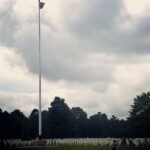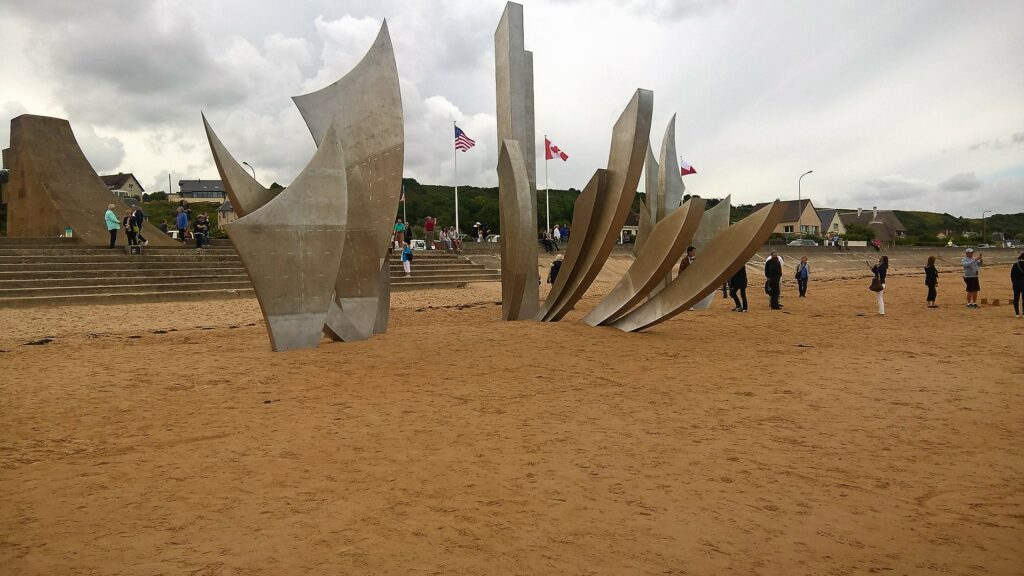
Supreme Headquarters Allied Expeditionary Force (AP) — Allied troops landed on the Normandy coast of France in tremendous strength by cloudy daylight today and stormed several miles inland with tanks and infantry in the grand assault which Gen. Dwight D. Eisenhower called a crusade in which “we will accept nothing less than full victory.”
German broadcasts said the Allies penetrated several kilometers between Caen and Isigny, which are 35 miles apart and respectively nine and two miles from the sea.
Prime Minister Churchill told the House of Commons part of the record-shattering number of parachute and glider troops were fighting in Caen, and had seized a number of important bridges in the invasion area.
German opposition apparently was less effective than expected, although fierce in many respects, and the Germans said they were bringing reinforcements continuously up to the coast, where “a battle for life or death is in progress.”
— Wes Gallagher. The full dispatch is worth a read.

By Ernie Pyle:
Our men were pinned down for a while, but finally they stood up and went through, and so we took that beach and accomplished our landing. We did it with every advantage on the enemy’s side and every disadvantage on ours. In the light of a couple of days of retrospection, we sit and talk and call it a miracle that our men ever got on at all or were able to stay on.
Before long it will be permitted to name the units that did it. Then you will know to whom this glory should go. They suffered casualties. And yet if you take the entire beachhead assault, including other units that had a much easier time, our total casualties in driving this wedge into the continent of Europe were remarkably low – only a fraction, in fact, of what our commanders had been prepared to accept.
And these units that were so battered and went through such hell are still, right at this moment, pushing on inland without rest, their spirits high, their egotism in victory almost reaching the smart-alecky stage.
will give you Pyle’s full report from D-Day Plus One.

Martha Gellhorn, working for Collier’s, may have been the only woman correspondent there that day, in her case having boarded a hospital ship without permission, which got her arrested on her return to England. Here’s her Collier’s article:
It will be hard to tell you of the wounded, there were so many of them. There was no time to talk; there was too much else to do. They had to be fed as most of them had not eaten for two days; their shoes had to be cut off; they needed help to get out of their jackets; they wanted water; the nurses and orderlies, working like demons, had to be found and called quickly to a bunk where a man suddenly and desperately needed attention; plasma bottles had to be watched; cigarettes had to be lighted and held for those who could not use their hands; it seemed to take hours to pour hot coffee from the spout of a teapot into a mouth that just showed through bandages.

Leave a Reply
You must be logged in to post a comment.